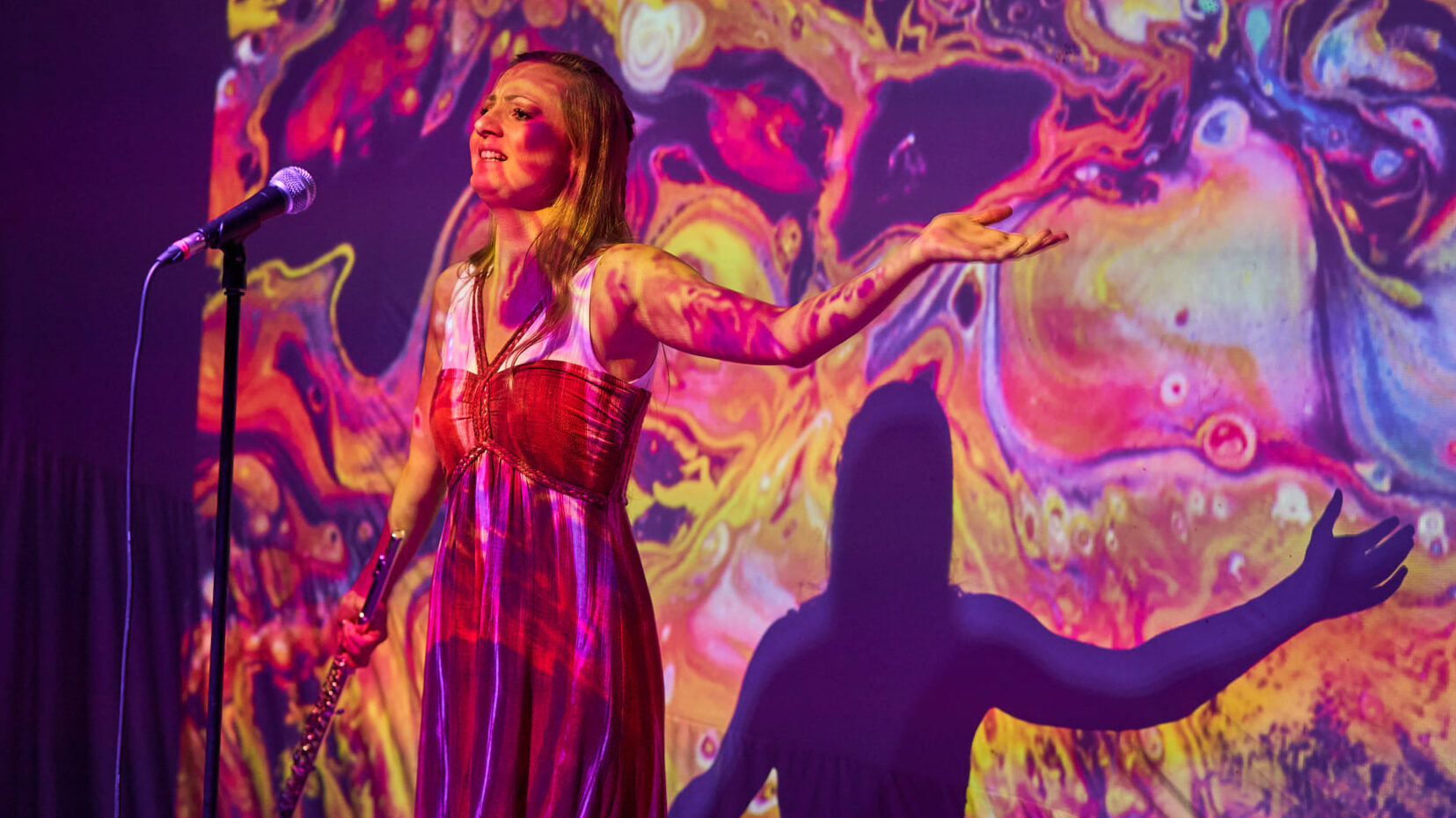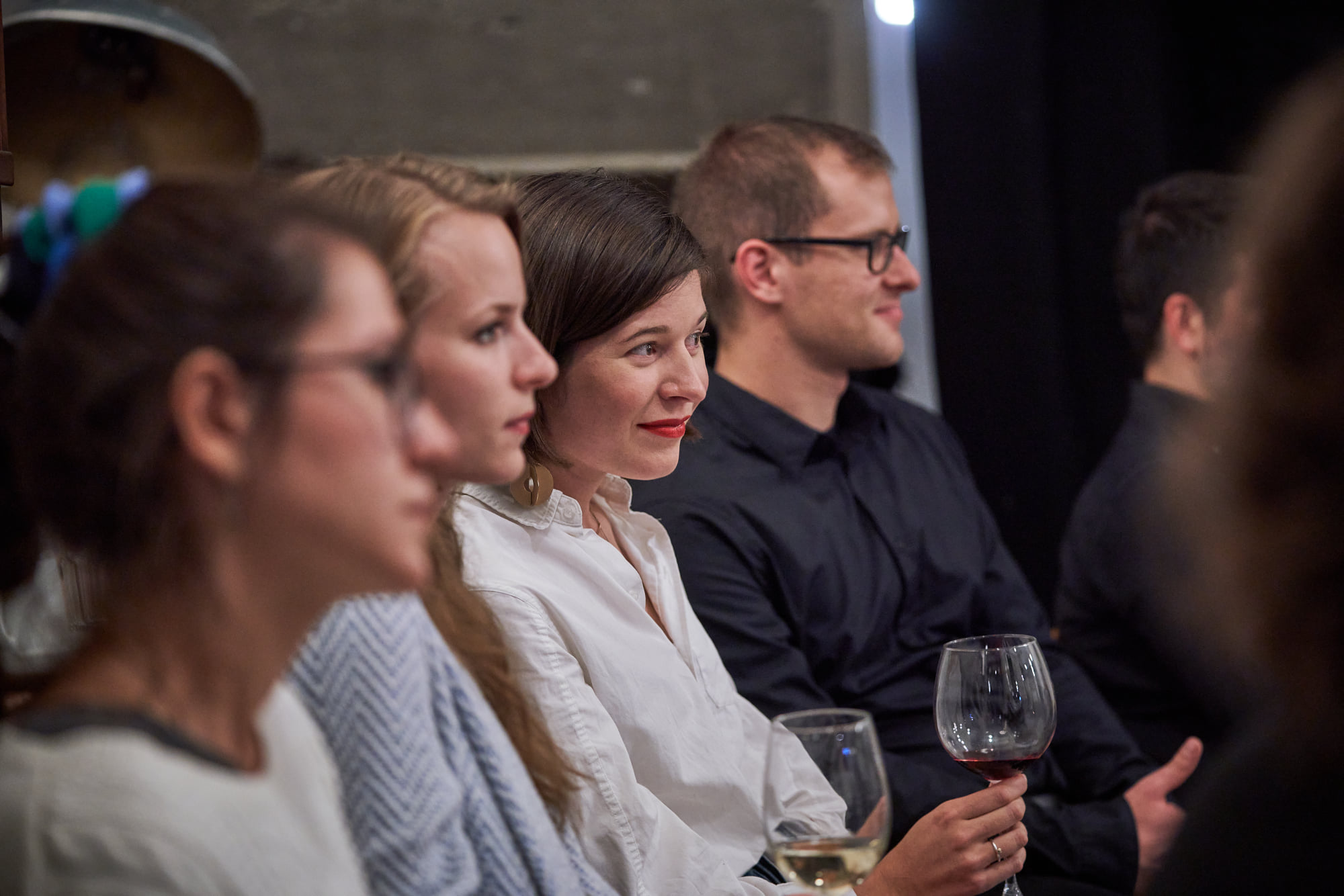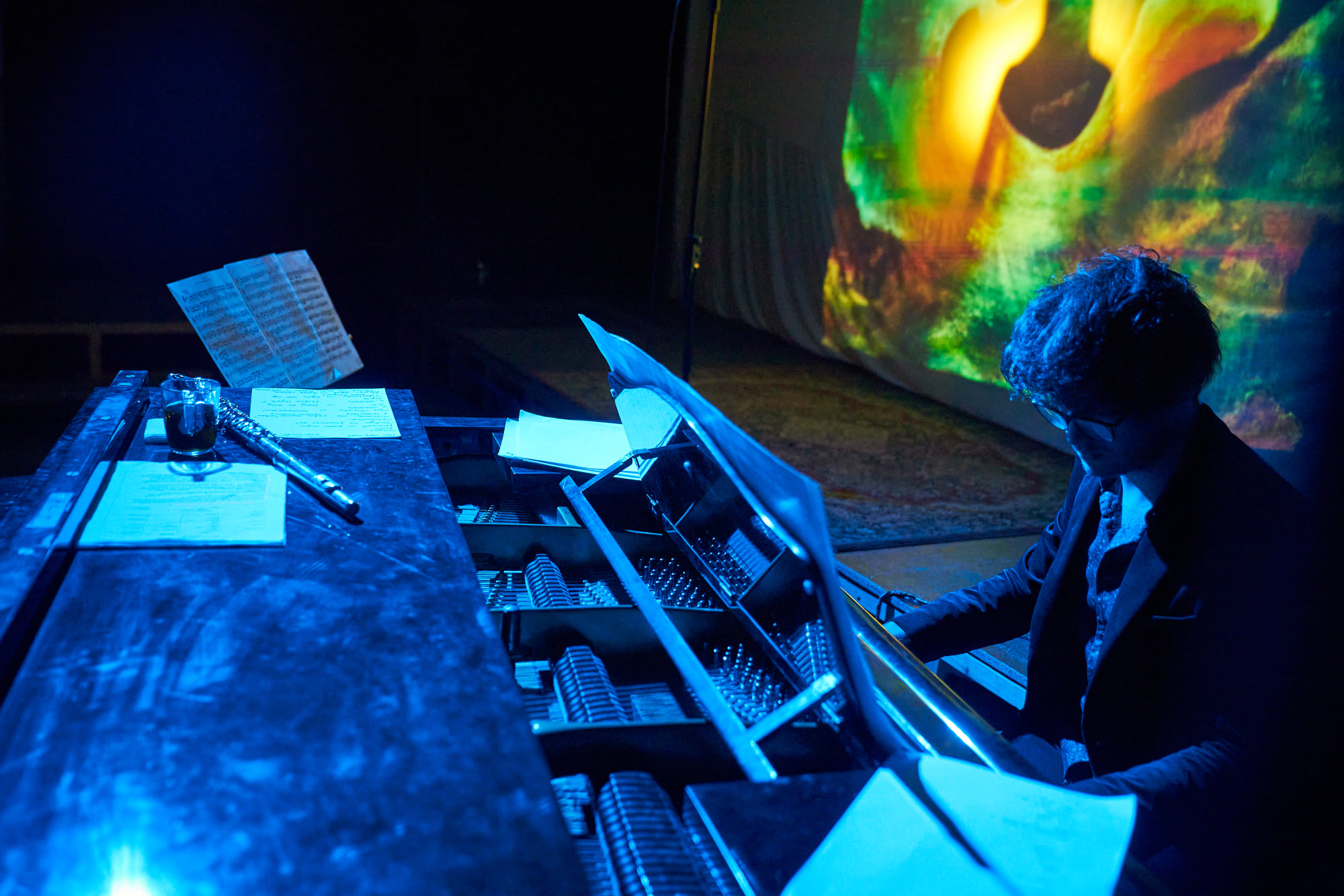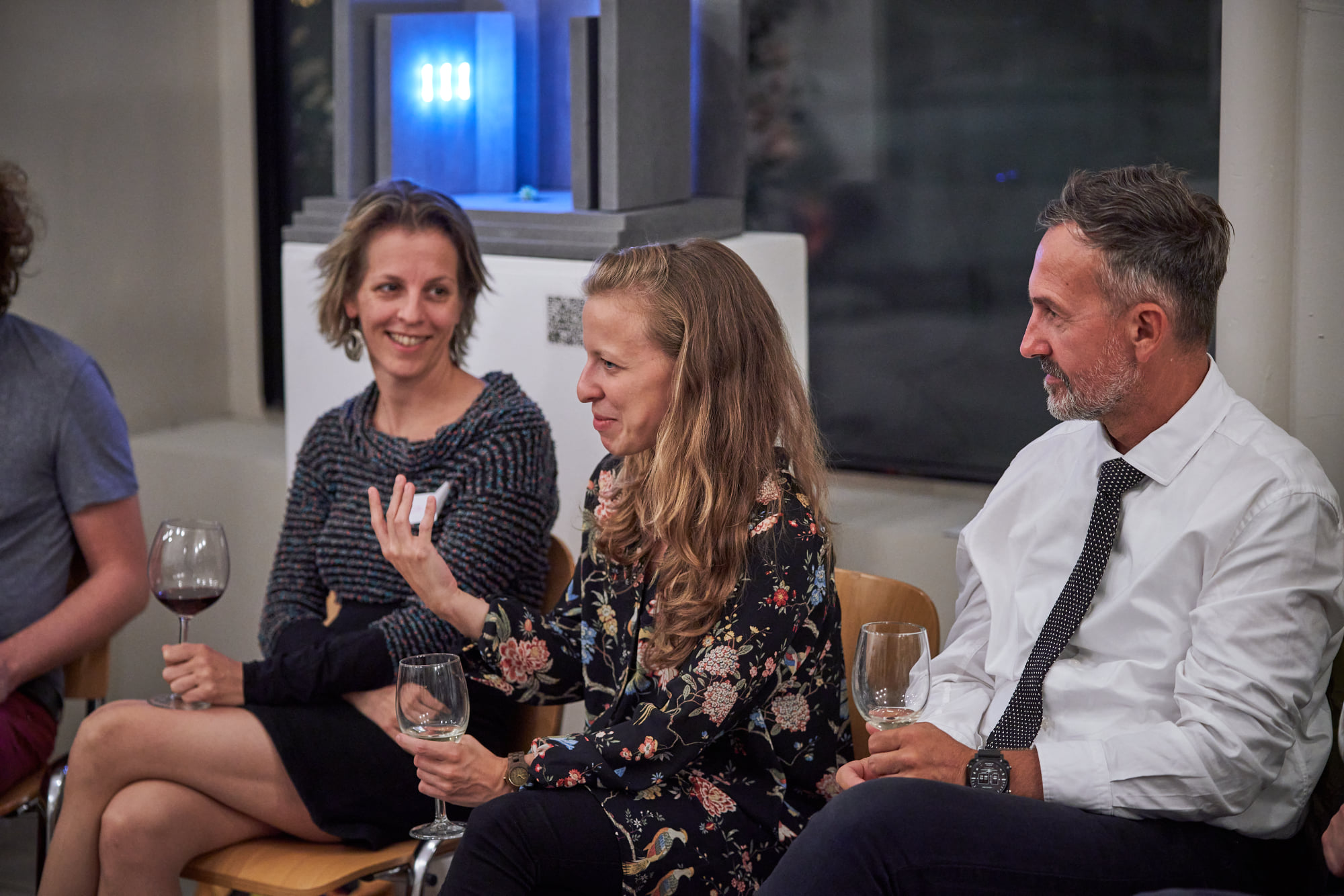
Underground outliners sat down in a basement to discuss what was wrong with concert hall rules. We discussed everything from uncomfortable seating to the obligatory tailcoat, and concluded that we need a lot more beanbag chairs.
How to dress? Should we read the brochure? Should we know the piece to be performed? Why should we know it beforehand if we came to get to know it? When is it appropriate to applaud? Is it allowed to sit on the stairs? And to take photos? What’s wrong with candies and coughing? Anyone who is a regular concert-goer has not only encountered these questions, but also has a strong opinion on them. Some complain about the rules, others about those who don’t follow them. But are these norms, which are the result of decades and centuries of tradition, of any use, or do they discourage many people from attending concerts?
These were the questions addressed during the first of the Play It Loud! event series at the Három Holló (t/n: Three Ravens Café, run by a foundation which, working towards the realisation of connection between Hungarian and European culture and arts, organises cultural and community-building events) on 24 September. The event titled Breaking Norms, Breaking Forms sought to answer a question that has long been on my mind: how can classical music be a more liberating, informal, and profound experience?

Breaking Norms, Breaking Forms – fotó: Valuska Gábor / JM Hungary
“Norms have a limiting effect, but they also offer a comfort zone,” says Zsuzsanna Szálka, cultural manager, the organiser of the project. “We need to think about these rules, because some of them make it difficult for new people to join the music-listening community.” Szálka has found that these professional discussions have a big impact. “Last year, the Musica Femina International Symposium started a discourse on the role of women in music and I’m glad that many people referred to us.”
In the cellar of the Három Holló, we sit with dozens of musicians and professionals—like members of an underground movement, I thought—and, led by Mária Kaposi, discuss the norms that belong to different musical genres. In many cases, dinner is served during a jazz concert; however, during a classical music concert you’re not allowed to even open your mouth. A rock concert is so loud that it’s as if the crowd became a collective subject, they may sing together, clap to the beat, drink beer, and smoke. On the other hand, we listen to classical music as if the performer was playing for us one by one, but there is no sound system, and a piano part can be ruined even by a squeaky shoe. The audience is dead, pop musicians say, when silence falls between two songs, but for a classical musician, a silent audience is a sign of absolute attention. It wasn’t always like this, someone interjects, two hundred years ago people ate, drank, and played cards during an opera performance. And in the concert hall, the failure of a new symphony was signalled if the applause did not roar after its first movement. Mozart rushed to the buffet for a celebratory ice cream as each movement of the Paris Symphony was applauded, and Elgar was ordered on stage by the audience in their enthusiasm.

Breaking Norms, Breaking Forms – fotó: Valuska Gábor / JM Hungary
Slowly it became clear that we were all bothered pretty much by the same things, but it certainly takes a concert promoter to find a cure for all our ills. Some of us would walk around while listening to music, some would lie down, some would have a drink, and some would keep quiet and expect everyone to do the same. It’s no coincidence that even “cautiously norm-breaking” concerts are great successes. When they let go of the dress code at the BBC Proms or Kaposfest, and put listeners in beanbag chairs at the Budapest Festival Orchestra’s series called Midnight Music, it turned out that people enjoy music more freely. And perhaps more importantly, too many rules get in the way of genuine applause. After all, how can we know whether a contemporary composer or performer has found their way into the hearts of listeners if we only applaud at the right place at the right time? And how do you know if someone hasn’t hit the mark if you have to applaud everyone until they give an encore?
It’s hard to imagine three dozen people jumping up and applauding after the opening movement of a new Péter Eötvös Piano Concerto because they like it so much. But it’s just as hard to imagine those same three dozen people whistling at the end because they didn’t like the world premiere so much. There’s a lot more to it than annoying candy wrappers.
New norms and taboos were shattered with the subsequent production, which I first thought was a concert, but it soon turned out to be a total art work performance of music, prose, songs, and elements of performance art by flutist Dominika Ács, and pianist Elemér Balázs Jr. Dominika first takes the pulse of some members of the audience and then paces Elemér, who will perform improvised and classical pieces. The programme includes Bach, de Falla, Bea Palya (t/n: a distinctive figure of the Hungarian world music scene), pop songs, and jazz-inspired improvisation, projected paintings from the Renaissance to the dada and beyond. I try to observe “independently objectively” what my subjective reaction is. I arrive at the following results:

Breaking Norms, Breaking Forms – fotó: Valuska Gábor / JM Hungary
1) I like the way Elemér Balázs Jr. plays the piano, because composers always play the piano more freely. Even when they play from sheet music, it’s still as if the music had just been written.
2) I am impressed that Dominika Ács dares to try something new. The life of an instrumentalist is usually about completing their schooling, entering competitions if talented, and playing through the (plus or minus) core repertoire of their instrument if they win. There is relatively little risk in this, but more in what this young artist is doing. Even a risky failure is worth more than a risk-free success. (Failure is out of the question now.)
3) We have not become more relaxed, but rather more tense. Everyone seemed to be paying very close attention.
4) When the performer wants to get you involved in the performance (they should paint on your clothes), few are brave enough. I should also note: homo classicus musicus is not used to being considered a participant.
5) A side note, but maybe it fits: I bought a beer before the show and had to conclude that I was glad I had one. I wouldn’t have been so happy with orange juice, so maybe it’s not the music, but the alcohol.
Finally, we discussed the experience of the performance with music historian Anna Belinszky. Anna Somogyi, the director of the performance, says that she wanted to show that you have to let go of your ego for a performance to hit its target. Audiences are most interested in the performance, with some saying they didn’t go because they felt the production expected them to go. It turns out that breaking the norm is a more complex act than we think. It doesn’t just make sense to do something unusual. The norms to be broken are those that get in the way of some deeper instinct.
Play It Loud! is organised by Jeunesses Musicales International and the International Music Council (IMC).






